I am a Christian – so I am a resident alien.
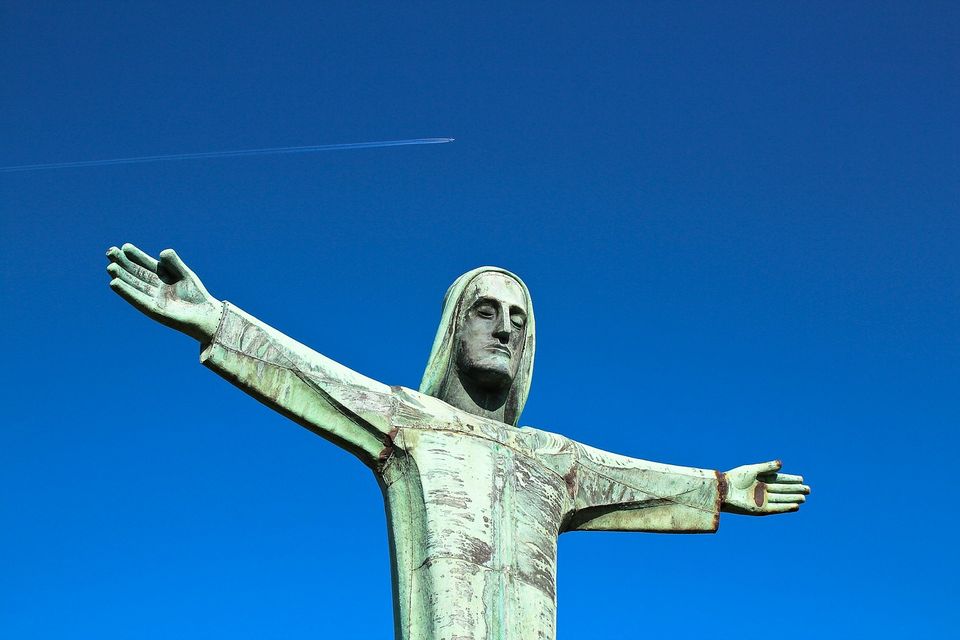
I haven’t been posting here as my writing and thinking time has gone in the direction of Plainsong Farm, Grow Christians and the Christian food movement site. But I’m serving a congregation again. I generally hate sermon blogs, but some times in history call for sermons to be shared. This is one of those times.
This sermon was preached yesterday with Holy Spirit Episcopal Church in Belmont, Michigan.

Twenty-some years ago, there wasn’t an internet. There were still bookstores. And I wasn’t a Christian yet.
I wasn’t a Christian, but I was a pretty serious seeker. And I liked bookstores. That’s how I found myself browsing along the shelves of the religion section in a bookstore, not really sure what I was looking for. I got to the title Resident Aliens, and I pulled that title off the shelf.
I knew something about resident aliens. My father was a resident alien in the United States for thirty years. He was a legal immigrant; he had a green card, but he never became a citizen. I knew about that kind of resident alien. But why would there be a book about that in a religious bookstore?
The cover had the full, much longer title: Resident Aliens: A Provocative Christian Assessment of Culture and Ministry for People who Know that Something is Wrong.
I knew something was wrong. So I opened it. I started reading it in the bookstore. After a while I realized I didn’t want to stop. So I bought it and took it home. Reading Resident Aliens was one of the turning points on the path of my conversion to become a disciple of Jesus Christ.
The authors – Stanley Hauerwas, a seminary professor and William Willimon, then a Methodist pastor, later a Methodist bishop – describe the slow but sure shift that took place in our country as Christianity lost pride of place. The book opens with a story about the first time the movie theatre in Greenville, South Carolina opened on a Sunday morning. Seven members of the youth group snuck out of church to see John Wayne. That was in 1963. “Our parents never worried about whether we would grow up Christian,” they write. “The church was the only show in town. On Sundays, the town closed down. One could not even buy a gallon of gas.”
I was born in 1971. I’ve never known that world. It is gone. Even in west Michigan.
But instead of lamenting its disappearance, Hauerwas and Willimon celebrate it. They know that Christianity was an outlaw religion for its first 300 years. That’s why so many of our early saints are martyrs; they were killed at the hands of the state. Resident Aliens makes the point that Christians were persecuted until Emperor Constantine converted to the faith in 313. They mark that as the beginning of Christendom – the alliance between state and religion. They mark 1963 as the end.
And that’s okay with them. It’s even a good thing. Because they know Jesus Christ didn’t come to found a country or bless a government. He came to reconcile all humanity to God. His disciples put him first, above the transient laws of any country. That’s why we call him not only our Savior but also our Lord. Following Jesus as Lord makes us resident aliens anywhere we live. Jesus Christ tells us himself: his kingdom is not of this world.
Today our gospel lesson is the Beatitudes. We get Matthew’s version this morning. In the gospel according to Luke, the Beatitudes are part of something called “The Sermon on the Plain,” but in Matthew, the sermon is “The Sermon on the Mount.” Why? Because Matthew, a tax collector for the Jewish people, was trying to teach his fellow Israelites who Jesus was. Mountains matter in the history of Israel. Here’s your pop quiz of the day: Where in the history of the people of Israel is there a mountain?
![By Mohammed Moussa (Own work) [CC BY-SA 3.0 (http://creativecommons.org/licenses/by-sa/3.0)], via Wikimedia Commons](https://www.nuryaloveparish.com/content/images/wp-content/uploads/2017/01/Mount_Moses-1024x685.jpg)
Mount Sinai is where the Ten Commandments are delivered to the people of Israel. Moses goes up a mountain to receive the word of God. He comes down with the commandments. Now, in Matthew’s gospel, Jesus goes up the mountain to deliver this scandalous update.
The Ten Commandments have one main point: Your life isn’t about you. It’s about God. Put God first. Love nothing and no one better than God. Don’t kill people – God gave them life and breath, you didn’t. Don’t steal what doesn’t belong to you – don’t even covet what doesn’t belong to you. Keep your eyes on your own life to do what is right. You are to be a light to the nations, a witness to the power and wonder of your Creator. Today, we read Micah’s one-sentence summary: do justice, love mercy, and walk humbly with God.
The Beatitudes, in Matthew’s Gospel, are Jesus’ reboot of the Ten Commandments. Did you ever notice how fundamentally upside-down the Beatitudes are? Everything we glorify in our culture, everything we put on magazine covers and celebrate at awards ceremonies, gets overturned. We think that the good life is being rich, powerful, safe, happy and admired. Jesus tells us that the good life is about being poor and hungry – in Luke’s version – or poor “in spirit” and hungry “for righteousness” in Matthew’s version. Jesus tells us that the good life is about being meek and merciful. It’s even about being persecuted, reviled, and lied about for the right reasons.
Why would we be surprised? Jesus sent out his disciples two by two without so much as an extra meal. He never shied away from offending the religious authorities. He even remained silent before the governor when called before him on trial. Nothing mattered more to Jesus than the truth and power of God. Because he WAS the truth and power of God, come in the flesh. But if we follow him – and we are here today to be his disciples – we can’t expect that to be an easy road.
To be a disciple of Jesus Christ is to follow his law, which is love. That means feeding the hungry and welcoming the stranger. That includes refugees without discrimination based on religion or country of origin. When the day of Judgment promised in Scripture comes, our loyalty to a human government will not matter. What will matter is our loyalty to the law of love brought to humanity in the flesh in Jesus Christ our Lord. He told us himself in the Gospel of Matthew, chapter 25 that we would be judged on the kindness we showed to those in need.
I became a Christian twenty years ago because in a world where there is so much wrong, the life and teachings of Jesus are a plumb line of truth and grace that always, always point me on the right path.
I love my country. I am a loyal citizen of the United States of America. But I am also a resident alien, because my first allegiance is to the life and teachings of Jesus. Strangely, being a resident alien makes me a better citizen and a better Christian. I don’t expect my country or culture to practice my religion on my behalf. I have to do that myself. We have to do that together.
That’s why we’re here, Holy Spirit Episcopal Church in Belmont, Michigan. The good news is, Christ has already gone before us in that path. He is with us every step we take in faith. And he will never leave us to face our troubles alone.
In the name of God, Father Son and Holy Spirit, Amen.
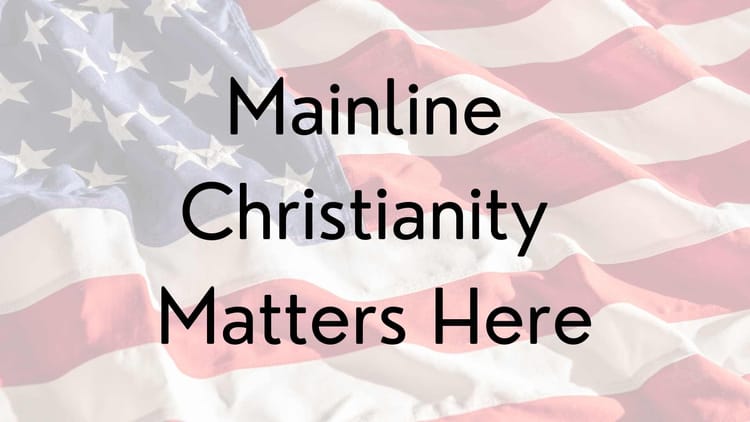
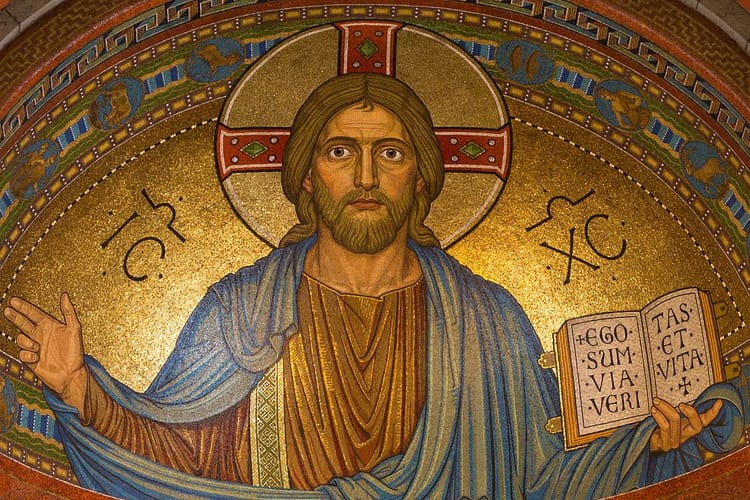
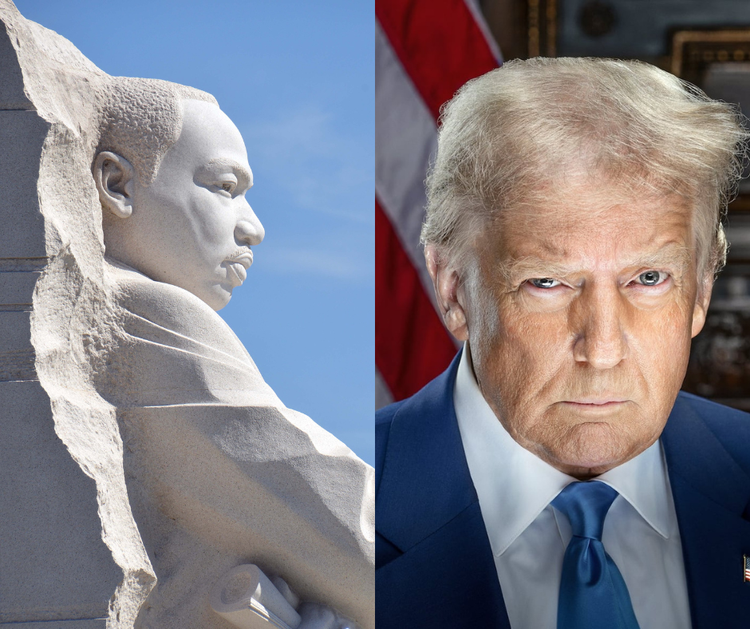
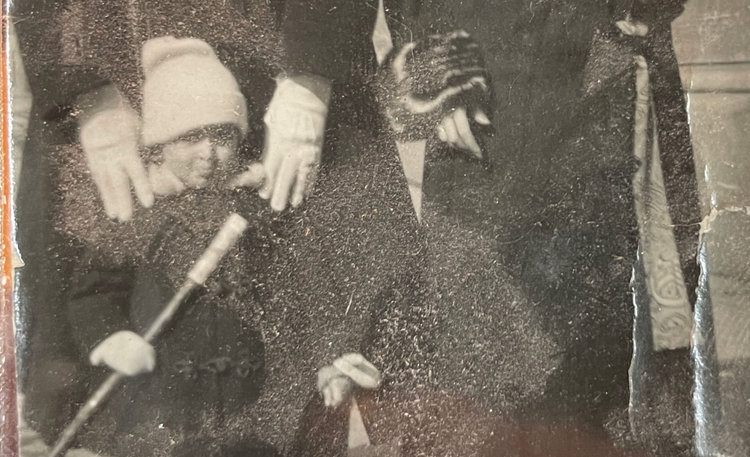
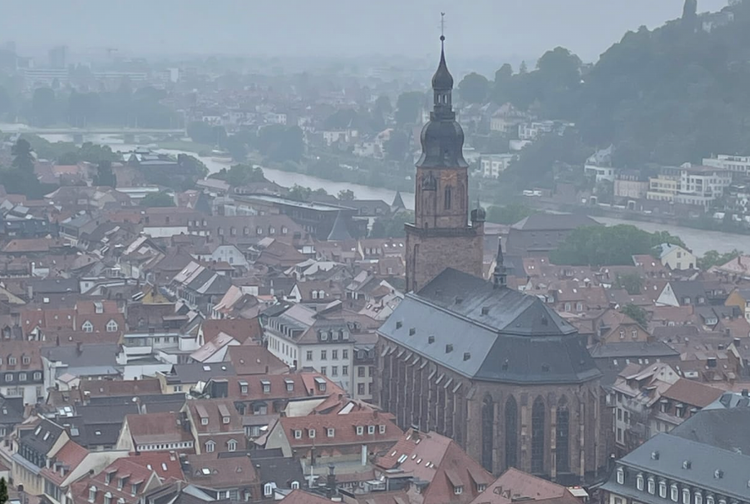
Member discussion